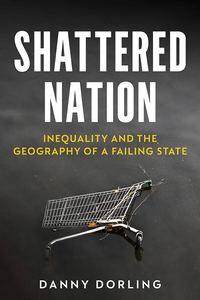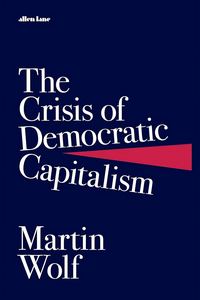Book reviews – Dorling, Wolf, Nineham
Breaking Apart
 Shattered Nation: Inequality and the Geography of a Failing State. By Danny Dorling. Verso £14.99.
Shattered Nation: Inequality and the Geography of a Failing State. By Danny Dorling. Verso £14.99.
It was recently reported (BBC online 21 March) that the UK now has twelve million people living in absolute poverty, after the biggest rise in thirty years. And in December the Centre for Social Justice (centreforsocialjustice.org.uk) published Two Nations, a report which concluded that for those who are not getting by, ‘their lives are marked by generations of family breakdown, their communities are torn apart by addictions and crime, they live in poor quality, expensive, and insecure housing, and they are sick.’ Here Danny Dorling, who has written on similar issues in the past, surveys many of the ways in which the lives of British workers are indeed being shattered.
One theme is that in most of the world, human lives are improving, but not so much in the UK. For instance, infant mortality is falling faster elsewhere than in the UK, and economic inequality is falling. The UK is probably the most unequal country in Europe in terms of income inequality. In the late 1960s and early 70s, Britain was more equal than it is now, and where you grew up was less important than it is today.
The second part of the book echoes the Five Giants identified in the 1942 Beveridge Report. They are presented as hunger, precarity (insecurity related to housing as well as employment), waste (with far more people now working in finance and accounting), exploitation (such as high university fees), and fear (physical and mental health having declined since the 70s). Research in 2022 showed that one UK household in six was in serious financial difficulty. Austerity has led to a slowdown in growth in life expectancy in Britain, and people in the poorest fifth of households saw their earnings fall between February and May 2020. Death rates from Covid were higher in the poorest areas, and long Covid is most commonly found there too. Many facts and statistics such as these make much of the book an informative but rather depressing read. There is one refreshing observation, though: ‘We should measure the value of a job by the amount of happiness it brings to others, not by the profit that can be made by the person employing the worker.’
And what is the author’s proposed solution? This is not a book where the last chapter offers a raft of reformist measures intended to do away with the problems discussed earlier. Rather, the proposals are spread throughout its pages, including minimising VAT, raising wages faster than food price increases, making school lunches universally available, making tenancy agreements more secure, and restricting second-home ownership. It is ironic that the Labour Party is criticised for proposing ‘only more tinkering’, when the ideas set out here are little more than that.
What we said in the April 2015 Socialist Standard is just as valid as it was then: Danny Dorling should be a socialist and not simply fight for reforms.
PB
Not so democratic
 The Crisis of Democratic Capitalism. By Martin Wolf. Penguin £12.99.
The Crisis of Democratic Capitalism. By Martin Wolf. Penguin £12.99.
The basic argument here is that market capitalism and liberal democracy belong together, albeit in a difficult relationship. Both supposedly involve equality of status: the right of people to a voice in public affairs and to buy and sell what they own. Market capitalism drove economic growth, we are told, and led to pressures for ‘universal suffrage democracy’. But in recent decades increasing inequality and personal insecurity mean that democracy has become fragile and been partly replaced by ‘demagogic autocracy’, as populism becomes more influential. Yet both democracy and capitalism can be renewed, resulting in a bright future again.
There is a great deal of useful information here, and Wolf sometimes reveals the true nature of capitalism. For instance, between 1980 and 2016, ‘the real incomes of the global top thousandth rose by 235 percent’, while real incomes have been stagnant for large parts of the population. Most people are just ‘one disaster away from ruin’, with very little by way of savings. Companies ‘possess enormous economic and political power’, and there is a ‘huge imbalance of power between footloose corporations and local workers’: this last refers specifically to multinational companies moving jobs abroad, but in fact applies far more widely.
The rise of the market economy is said to have led to pressures for election-based democracy. But there is nothing about ruling-class resistance, with no reference to Peterloo, Chartism or the suffragettes, for instance. Universal suffrage arrived fairly late, first in New Zealand in 1893, in the UK in 1928 and the US only in 1965. The valid point is made that democracy is a continuum, not an either–or matter, but it implies more than just the ability to vote, and capitalism has an inherent imbalance of power between the owning class and the working class. And has market capitalism (with competition and private economic initiative) really been the predominant version of capitalism over the long term? Wars were fought to open markets in other countries to Western trade, and slavery played a crucial role, as did protectionism. There was supposedly an era of ‘mixed economy’ from the 1950s to 1970s, which changed to free markets from the 1980s (with a concomitant increase in inequality, as noted above), but in reality the state always interferes in some way, in defence of the interests of the ruling class.
Unfortunately, Wolf has no idea about alternative systems. He thinks that socialism means state control over the economy, and the idea of degrowth is dismissed with little argument, since it could only be implemented by a global dictatorship and would supposedly mean reversing centuries of human history. His solution is to use ‘piecemeal social engineering’ to achieve aims such as a rising and sustainable standard of living, equality of opportunity, and the ending of special privileges for the few. But of course the last of these would not mean an end to the wealth, power and influence of the one percent, as the power of the capitalist class is built into all varieties of capitalism, a system that can never be truly democratic.
PB
Class matters
 Radical Chains. Why Class Matters. By Chris Nineham. Zero Books, 2023.197pp.
Radical Chains. Why Class Matters. By Chris Nineham. Zero Books, 2023.197pp.
Recent times have seen much talk of identity politics and sectionalism. Gender, race, and ethnicity among other ‘sectional’ interests create what the author of this book sees as divisions and diversions from the common interest we have in establishing a different kind of society from the existing one. The view he forcefully expresses is that to regard these as groups with different interests has the effect of diverting attention from the shared working-class issue of wage and salary work and the insecurity it brings.
The book’s sub-title, ‘Why Class Matters’ is an uncompromising expression of the Marxist view that there are two main classes in capitalist society, the tiny minority class that owns and controls the Earth’s resources (the capitalist class) and the vast majority (the working class) who, in order to survive, need to sell their labour-power for a wage or salary to that minority. It argues this proposition with informed and incontrovertible clarity and powerfully insists that the effect of ‘identity politics’ is to cause muddle and confusion, nor does it make any sense to split wage and salary earners into a series of different sub-classes (eg, ‘middle class’, ‘upper class, ‘professional class’) with somehow different interests from one another. He dismisses ‘the various attempts to downplay class’ as ‘completely misleading’ and illustrates effectively that, whatever their line of work, all those who live on a wage or salary are fundamentally in the same subordinate position with regard to the system and the class that owns it (ie, the capitalist class).
This message is then connected, in a wide-ranging survey, to the various conflicts, large and small, that have arisen across the globe between subjects and their masters over the last two centuries. Yet here it somewhat loses its way and focus in seeking to see in these conflicts conscious attempts to establish new forms of society rather than largely desperate reactions by downtrodden people against oppression or powerlessness. It starts with the nineteenth-century movements for political change in France and Germany before going on to Russia’s 1905 revolution, and then the taking of power by the Bolsheviks in 1917 and the civil war that followed, with reflection on these events as analysed mainly by Trotsky, Gramsci and Lukacs.
The author then moves on to the Second World War and its aftermath, and later, in a section entitled ‘Dreams deferred’, he takes us through revolts and uprisings in China, Egypt, Algeria, Cuba, Vietnam, and Latin America as well as the ‘Arab Spring’ before moving back to Europe with the ‘events’ of May 1968 in France, the opposition to Thatcherism in Britain and the reactions to the ‘neoliberalism’ which it heralded. A broad sweep indeed in which historical development is often encapsulated with verve and economy (eg, the First World War defined as ‘the catastrophic climax of mounting international competition for markets and resources’) but which is tainted by an over-enthusiastic tendency to see events as more driven by class-conscious motives than they were in reality.
Having gone through this history of revolt and struggle, the author’s main message for today is that we must struggle against the current ‘neoliberalism’, which he sees as a new and increasingly exploitative form of capitalism causing ‘an epidemic of workplace insecurity’. He peppers his book with references to it, seeming to consider it as something qualitatively different from the capitalism that existed before over the past two centuries. But is it that much different from capitalism’s business as usual? It’s true that, in the post-Second World War years, free-market capitalism (previously called ‘laissez-faire’) gave way to a new variation widely practised by governments, whereby the state would intervene in the economy more readily than before to try and get the system back working in a less crisis-ridden way (often called ‘Keynesianism’).
But as capitalism went on its merry way creating, as the author himself quoting Marx says, ‘uninterrupted disturbance of all social conditions’, the state intervention method was found to be no more effective in ‘taming’ capitalism than what preceded it. It became discredited therefore and governments went back to favouring so-called ‘free markets’ and the relaxation of controls: an old way of running things in fact, even if its critics have attached to it the new label of ‘neoliberalism’. The fact is that governments do not – cannot – control the way the capitalist economy works. It’s the other way round. It’s the operation of capitalism that constrains governments. In fact they can do little more than react to what it throws at them. And the system remains fundamentally the same – something the writer himself, despite his focus on ‘neoliberalism’ seems also to accept when he writes ‘the production of commodities through exploitation remains …the driving force of the system’ and ‘it is still a system with the exploitation of workers at its heart’.
But what is the form of struggle he advocates that we engage in to transcend the capitalist system and establish socialism? At one point he quotes Marx’s view of socialism as being the ‘abolition of the wages system’, talks about ‘liberating society as a whole’ and ‘dissolving classes altogether’ and seems to agree that this should be the ambition of those who oppose capitalism and have a clear view of the class system that characterises it regardless of attempts at obfuscation. And that is very much to his credit.
But the main thing he seems to offer in terms of action is support for ‘struggles over pay and conditions by trade unions’, which, it is claimed ‘have a capacity to generalise into a political conflict between different class organisations’ and ‘at the same time developing the revolutionary consciousness and combativity of all those involved’. We have of course heard this kind of thing many times before from the Trotskyist left and we continue to argue that it’s no substitute for a movement whose aim should be to develop majority consciousness among workers of the need to use democratic means to establish a classless, stateless, marketless, free-access society of democratic cooperation, mutual aid and economic equality based on the principle of from each according to ability to each according to need.
HKM
Next article: 50 Years Ago – Bishop who made our pamphlet his Bible ⮞
One Reply to “Book reviews – Dorling, Wolf, Nineham”
Leave a Reply
You must be logged in to post a comment.

Chris Nineham was for many years a leading member of the SWP, and was part of the split from that organisation in 2010 – alongside the likes of John Rees and Lindsay German – which led to the formation of the group, Counterfire.
As a musical aside, he was briefly a member of the band The June Brides. Sadly for him, this was before the NME’s C86 compilation, so he missed out on his moment in the Jangly Pop Sun.